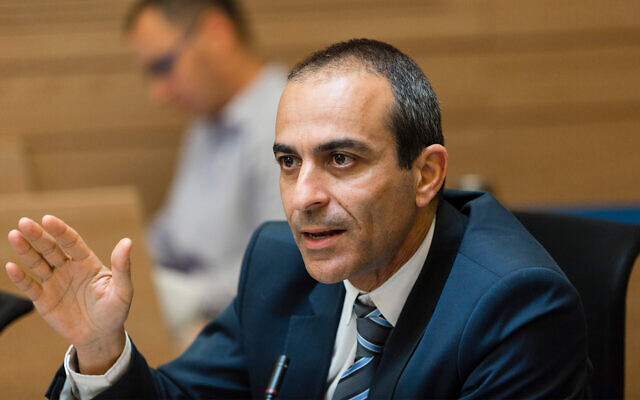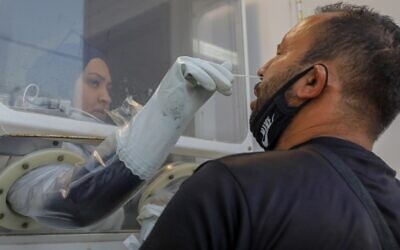Health Ministry confirms 1,554 new cases in 24 hours, 10 deaths; Netanyahu said to be pushing for full closure, but coronavirus czar Gamzu and other ministers reluctant

A top ministerial panel was set to convene Thursday to decide whether new restrictions, including a potential nationwide lockdown, would be imposed over the Jewish High Holiday period next month to stem the coronavirus outbreak.
The coronavirus cabinet meeting — planned to start at 4:30 p.m. — comes as infection levels have remained high, amid fears that communal prayers and family gatherings over the festivals of Rosh Hashanah, Yom Kippur and Sukkot could cause a renewed spike.
The High Holiday period begins this year on September 18 and ends on October 10.

Prime Minister Benjamin Netanyahu and National Security Council head Meir Ben-Shabbat are both pushing for a full nationwide lockdown in the coming weeks while so-called coronavirus czar Ronni Gamzu has reservations, the Walla news website reported on Thursday, citing cabinet ministers and senior officials.
In the first wave of infection in March and April, Netanyahu imposed a lengthy nationwide lockdown with the support of then-Health Ministry director general Moshe Bar Siman-Tov.
The measure succeeded in driving down cases, but caused extensive economic damage. The government’s failure to establish an effective testing and contact-tracing system meant that infections spiraled quickly out of control once the lockdown was lifted. Since then, many ministers have taken a strong stand against lockdowns, Walla reported.
Gamzu has been a vocal opponent of sweeping lockdowns, favoring localized restrictions on outbreak hotspots. But that policy has not been approved by the coronavirus cabinet thus far.
Army Radio reported Thursday that according to the draft plan promoted by Gamzu, gatherings in “red” zones with high infections will be capped at 20 people in outdoor areas and 10 people indoors. In “green” zones with low infection rates, 250 will be allowed to gather outdoors and 100 indoors.
“It’s a good plan, but it isn’t clear whether it’s implementable,” Walla quoted an unnamed senior minister as saying. “Israel is a small country and I’m not sure we can really make a distinction between different areas.”
The high infection rates combined with pressure from Netanyahu have reportedly forced Gamzu to consider a lockdown over the Jewish fall holidays.

He will present a lockdown plan during Thursday’s meeting, Walla reported, including strict restrictions on gatherings, especially in synagogues and family gatherings. But he won’t recommend that course of action at this time, and is still holding out hope the discussion will end without a decision, the report said.
Sources told the outlet that few ministers support a lockdown at this time, arguing that infection levels aren’t rising and the healthcare system isn’t close to being overwhelmed.
However, if infections don’t go down significantly over the next few weeks, “we won’t celebrate the holidays as usual,” Gamzu has said in closed meetings, the report said.
The Health Ministry confirmed 1,554 new COVID-19 cases in the previous 24 hours on Thursday morning, bringing the total count to 98,550.
There were 23,913 confirmed active cases, of which 403 were in serious condition, including 110 on ventilators. Another 165 were in moderate condition and the rest had mild or no symptoms.
The death toll, which leapt Wednesday by more than 50 after a mistake caused fatalities at senior living homes not to be counted previously, grew by another 10, reaching a total of 789.
The ministry said 26,365 coronavirus test results returned on Wednesday, with a positive rate of 6.2 percent.
The dramatic jump in the death toll had come after the Health Ministry admitted to undercounting Israel’s COVID-19 fatalities, issuing a statement saying that it had failed to include 53 deaths at senior living homes during July and August in its official count.
As reported by The Times of Israel
